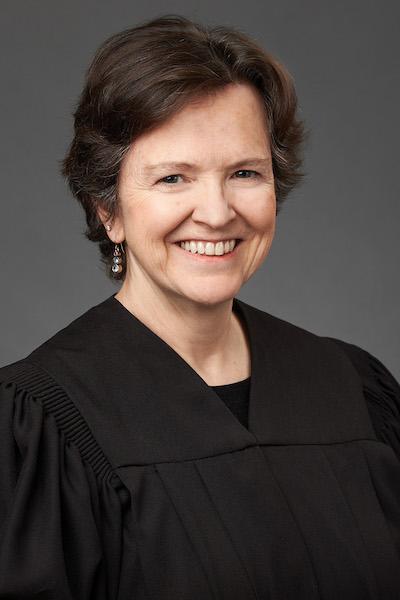Mary Rowland, ’88: From Illustrious Public Interest Career to the Judiciary

Mary Rowland, ’88, has served as a district judge at the US District Court for the Northern District of Illinois since 2019.
When Rowland came to the Law School, it was with the goal of practicing public interest law. She enjoyed 22 years in that field, at the Federal Defender Program for 10 years, and then for 12 years at the civil rights-oriented law firm Hughes, Socol, Piers, Resnick & Dym. As an assistant federal defender she represented nearly 300 indigent defendants charged with federal felonies in every aspect of the legal process. She became the program’s chief appellate attorney, drafting and arguing clients’ appeals and supervising staff attorneys doing that work.
At Hughes Socol she was involved in cases that included victories for an Islamic charity accused of funding terrorists; correctional officers who were mistreated after reporting abuse of inmates by other correctional officers; minors who were strip-searched at a juvenile detention center; and African-American firefighter candidates in Chicago who had been denied entry-level jobs because of an unfair civil service test.
“It wasn’t easy to find much support for a public interest career when I was at the Law School,” she recalled. “The emphasis was very heavily on joining a firm or having an academic career.” She interned for two years at the ACLU while she was in school, found funding for summer jobs at the National Prison Project and at Business and Professional People for the Public Interest, and joined the newly formed Progressive Law Students Association.
“I was able to make my own path then, and others did too, but I’m glad to see how much the Law School has done in recent years to support students making the choice to practice in the public interest,” she said. “The profusion of clinical opportunities is a very good thing, and strong financial support for students aiming for public interest careers is another. In a broader sense, I think there has been a significant change in the culture that now places public interest work on a more equal footing with other career choices.”
In 2012, she was appointed as a magistrate judge at the District Court. “I loved that job,” she said, “particularly the pleasures and challenges of leading settlement conferences and the great colleagues I had. My biggest personal challenge was remembering that I wasn’t a lawyer anymore and I couldn’t say aloud what I was thinking about how an issue might be argued. There came a point where I put a note on my bench reminding myself that I was the not the lawyer.”
At the ceremony swearing her in to her current position, at which she became the first openly gay judge on the court, Rowland addressed some of her remarks to the LGBTQ community. “I am so proud to be your sister,” she said. “Our community has had incredible successes, and a lot of that has been because many of us have come out and demanded to be treated with dignity and respect. I am keenly aware of my obligation to pay it forward and I will be mindful of that.”
The swearing-in ceremony brought together other threads from her life. She dedicated the occasion to her father, a lawyer with a deep sense of compassion (“I know that it is because of him that I am here today”). Her wife, Julie Justicz, ’88, was present (“We’ve been in love for more than 30 years”). Although their son Thomas was away at college, Justicz and their daughter Lilly stood with Rowland as she was sworn in by Chief Judge Rebecca Pallmeyer, ’79. Other attendees included Mayor Lori Lightfoot, ’89, whom Rowland had come to know well; Heather Sawyer, ’91, who is staff director and chief counsel to the Senate Judiciary Committee; Senator Durbin; and representatives from the Federal Defender Program and Hughes Socol.
“There was a lot of impressive Chicago Law presence in attendance at that ceremony, just as you might expect from a school that provides such strong skills and whose reputation can open so many doors, as it did for me,” she observed.